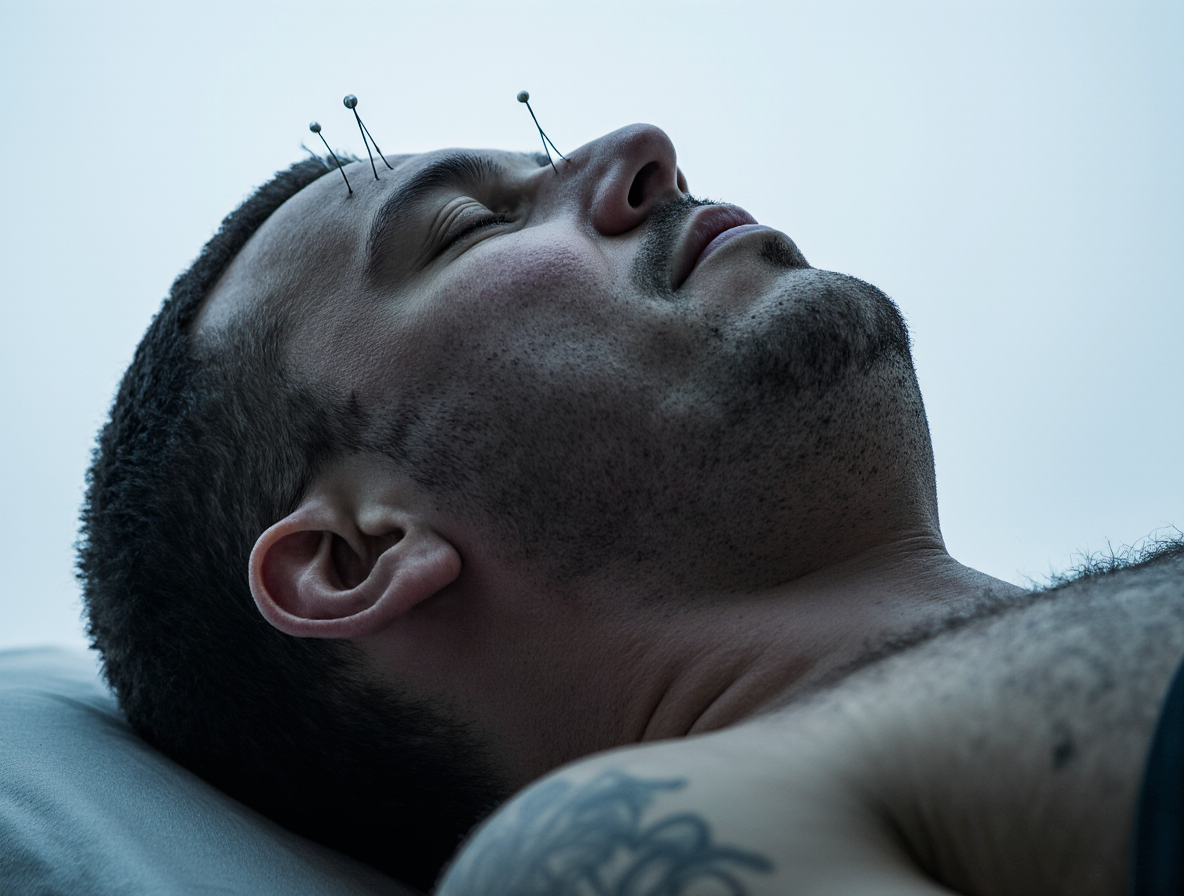How Acupuncture Can Help With Weight Loss Efforts
By: Daoyi Wellness
For Canadians striving to reach a healthier weight, conventional advice often revolves around diet and exercise. While these remain essential, many are turning to holistic therapies to enhance their weight loss journey—one of the most popular being acupuncture.
Rooted in Traditional Chinese Medicine (TCM), acupuncture is gaining ground across Canada as a complementary strategy to support weight management by addressing underlying imbalances, cravings, and stress responses.
Let’s get right into it.
Understanding Acupuncture
Acupuncture is an ancient healing practice that involves inserting fine needles into specific points on the body. According to TCM, these points align with pathways called meridians, through which the body’s energy—or “Qi”—flows. When this energy is blocked or unbalanced, it can lead to health issues, including weight gain.
In Canada, acupuncture is regulated provincially. For example, Ontario practitioners are governed by the College of Traditional Chinese Medicine Practitioners and Acupuncturists of Ontario (CTCMPAO). Many acupuncturists also hold membership in national associations like the Chinese Medicine and Acupuncture Association of Canada (CMAAC), ensuring adherence to professional standards.
The Link Between Acupuncture And Weight Loss
Acupuncture supports weight loss through several physiological and psychological mechanisms:
- Balancing Hormones: It may help regulate hormones like insulin, ghrelin, and cortisol, which influence appetite and fat storage.
- Reducing Stress: Acupuncture stimulates the parasympathetic nervous system, helping reduce stress and emotional eating.
- Curbing Appetite: Certain acupuncture points are believed to reduce hunger and improve digestion, making it easier to follow a healthy eating plan.
Scientific Studies Supporting Acupuncture For Weight Loss
A number of studies have shown promising outcomes. A 2018 meta-analysis published by the National Institutes of Health (NIH) found that acupuncture had a significant effect on reducing body weight, body mass index (BMI), and waist circumference compared to control groups.
Another study in the International Journal of Obesity found that participants who received regular acupuncture over a 12-week period experienced a greater reduction in abdominal fat compared to those who followed diet and exercise alone. However, experts caution that acupuncture should be viewed as complementary, not a substitute for healthy habits.
Key Acupuncture Points Used For Weight Loss
Practitioners often focus on specific points thought to influence weight control:
- Ear Acupuncture (Auriculotherapy): The ear contains points linked to appetite, digestion, and metabolism. Tiny seeds or needles may be taped to the ear to stimulate these zones between sessions.
- Spleen And Stomach Points: These help support digestion and reduce water retention.
- Endocrine And Thyroid Points: Used to address hormonal imbalances that may contribute to weight gain.
- Shen Men (Spirit Gate): Known for reducing stress and calming the mind, this point helps curb emotional eating.
What To Expect During A Weight Loss Acupuncture Session
Your first visit typically includes a thorough health assessment where the acupuncturist reviews your medical history, lifestyle, and weight goals. Treatment plans are personalized and may involve weekly or bi-weekly sessions.
During treatment, you’ll lie comfortably while hair-thin needles are inserted into targeted points. You may feel a mild tingling or warmth, but the process is generally painless. Sessions last about 45–60 minutes. Some people report feeling relaxed or even energized afterward.
Acupuncture Combined With Diet And Exercise
Acupuncture alone won’t replace good nutrition or regular movement—but it can make both easier. By regulating appetite, reducing stress, and improving sleep, acupuncture creates a stronger foundation for behaviour change.
Many acupuncturists offer dietary counselling and lifestyle advice tailored to your body constitution, helping you stay accountable and make sustainable choices.
Benefits Beyond The Scale
Weight loss isn’t just about the numbers. Acupuncture can contribute to:
- Better Sleep: Restful sleep supports hormone regulation and metabolic function.
- Enhanced Mood: Endorphin release during acupuncture can improve mood and reduce cravings.
- More Energy: Clients often report improved digestion and less fatigue over time.
These benefits can build momentum, making it easier to stick to a wellness routine.
Safety, Side Effects, And Choosing A Qualified Practitioner
Acupuncture is considered very safe when performed by a trained professional. Side effects are rare but may include mild bruising or temporary soreness at needle sites.
When choosing an acupuncturist in Canada, look for:
- Provincial licensure (e.g., CTCMPAO in Ontario)
- Clean, sterile equipment
- Positive client testimonials and credentials
Don’t hesitate to ask about experience with weight-related treatments during your consultation.
Costs And Insurance Coverage In Canada
In Canada, acupuncture sessions typically range from $70 to $120 per visit, depending on location and practitioner experience.
Many extended health benefit plans include acupuncture coverage under paramedical services. Additionally, acupuncture is a claimable medical expense for tax credits with the Canada Revenue Agency (CRA), making it more accessible than some realize.
Conclusion
Acupuncture isn’t a magic fix—but it can be a powerful ally in your weight loss journey. By supporting your body’s natural balance, reducing cravings, and helping you manage stress, this ancient practice offers a modern path toward sustainable health.
Combined with mindful eating, physical activity, and expert guidance, acupuncture could be the missing piece in your wellness puzzle.
Frequently Asked Questions
How Many Sessions Will I Need For Weight Loss?
Most people begin noticing changes after 4–6 sessions, but a full course may involve 10–12 sessions over several weeks depending on your goals and consistency.
Is Acupuncture Painful?
No, acupuncture uses extremely thin needles, and most people feel little to no discomfort. Some describe a slight tingling or a warm sensation during treatment.
Can Acupuncture Help With Belly Fat?
While acupuncture doesn’t target fat directly, it can support weight loss efforts that reduce belly fat, especially when combined with diet and exercise.
Will My Insurance Cover Acupuncture For Weight Loss?
Many Canadian health insurance plans cover acupuncture under extended health services, but it’s best to check with your provider for specifics.
Is Acupuncture Safe For Everyone?
Yes, when performed by a licensed practitioner, acupuncture is generally safe. However, always inform your provider if you are pregnant, taking medications, or have chronic health conditions.
How Does Ear Acupuncture Help With Weight Loss?
Ear acupuncture targets points associated with hunger, metabolism, and stress, helping to control cravings and emotional eating.
Are The Results Of Acupuncture For Weight Loss Permanent?
Lasting results depend on lifestyle choices. Acupuncture can make it easier to form healthy habits, but long-term success requires ongoing effort.
Can I Do Acupuncture While On A Weight Loss Medication?
Yes, but you should inform your practitioner about any medications or supplements you’re taking to ensure treatments are tailored safely.
Does Acupuncture Suppress Appetite?
Many people report feeling less hungry or having fewer cravings after sessions, likely due to its effects on the nervous system and hormone balance.
Can Acupuncture Replace Dieting?
No, but it can complement a balanced diet by supporting digestion, reducing stress-related eating, and boosting overall wellbeing.
If you have any questions about our article “How Acupuncture Can Help With Weight Loss Efforts” or need acupuncture for weight loss contact us at info@daoyiwellness.com or connect with us on our Google My Business Page.


